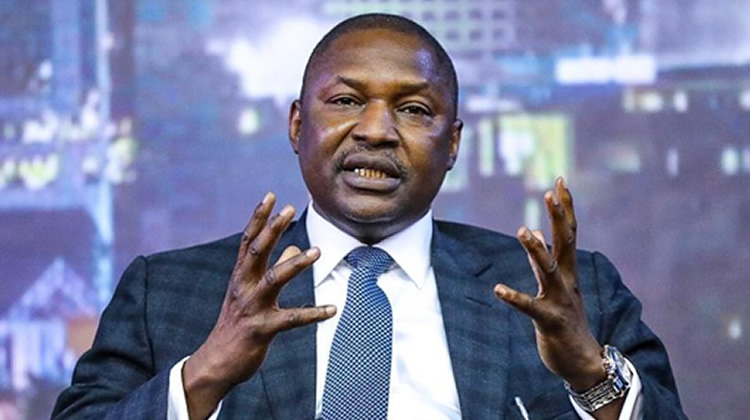
Worried by the increasing cases of torture in Nigeria, the Federal Government has inaugurated the National Committee Against Torture.
The government said the decision was aimed at eliminating torture, cruel, inhuman and degrading treatment in the country.
Members of the newly reconstituted committee were drawn from the Federal Ministry of Justice, National Human Rights Commission, Nigeria Police Force, Legal Aids Council, Nigeria Correctional Service, Nigeria Security and Civil Defence Corps, Economic and Financial Crimes Commission, Department of State Services, Nigerian Army, Nigerian Bar association among others.
The Attorney-General of the Federation and Minister of Justice, Abubakar Malami, while performing the inauguration, stated that the committee was expected to play a crucial role in stamping out torture and other related vices, and to ensure justice to survivors and victims.
A statement issued on Saturday by the Deputy Director (Public Relations and External Linkages) in the NHRC, Hajiya Fatima Agwai, said Malami observed that poor funding was the challenge of the previous committee, adding that the provision of adequate funding to ease the work of the committee has become imperative.
According to the minister, in as much as the committee has been given a broad mandate to deal with issues of torture in the country in accordance with the United Nations Convention Against Torture, “it is at liberty to seek more areas to dwell if the need arises, considering the critical nature of this national assignment.”
He said, “The AGF said that the Committee is empowered to liaise with the National Human Rights Commission in discharging its mandate, especially in the area of visits to Correctional Service facilities, to enable it to have first-hand information on the condition of inmates.”
The Solicitor-General of the Federation and Chairperson of the NCA, Beatrice Agba, on behalf of other members, commended the AGF for reconstituting the committee.
She assured the AGF of the committee’s commitment to satisfactorily implement the terms of reference, particularly with respect to providing timely statutory reports as required under UNCAT and working with renewed vigour towards fighting against the scourge.
The Executive Secretary of National Human Rights Commission, Tony Ojukwu, who also doubles as the alternate chair of the committee said the idea of NHRC hosting the committee (Secretariat) was in line with international best practices, given that it brings credibility to the work of the committee.
He recalled that visits to Correctional Service facilities and other detention centres were one of the major challenges of the previous committee, saying that leveraging on the powers of the NHRC to visit such facilities would be highly beneficial to the committee.
The NHRC CEO emphasized the need for the committee to collaborate with relevant MDAs, Nigerian Bar Associations and civil society organizations to identify and escalate complaints of torture so as to facilitate timely redress of these cases by the committee.
The committee’s terms of reference included “To engage and liaise with Committee Against Torture and regional human rights mechanisms in the context of country reporting, interactive dialogue or facilitation of visits by special procedure mandate holders or the Subcommittees on the Prevention of Torture.
“To organize and facilitate the preparation of reports to CAT and regional human rights mechanisms, and of responses to communication, follow up questions and recommendations or decisions received from such mechanisms.
“To coordinate data collection and information gathering from government agencies, National Assembly and the Judiciary for the reporting and follow up.
“To foster and lead consultations for reporting and follow up with the National Human Rights Commission and CSOs.
“To receive and consider communications on torture from individuals, CSOs and government institutions.
“To ensure education and information regarding the prohibition against torture are fully included in the training of law enforcement and public officers.
“To prepare quarterly briefings to the AGF on cases of torture and propose appropriate administrative/Judicial intervention.
“Propose a review of Anti-Torture Legislation and further develop a National Anti-Torture Policy.”





